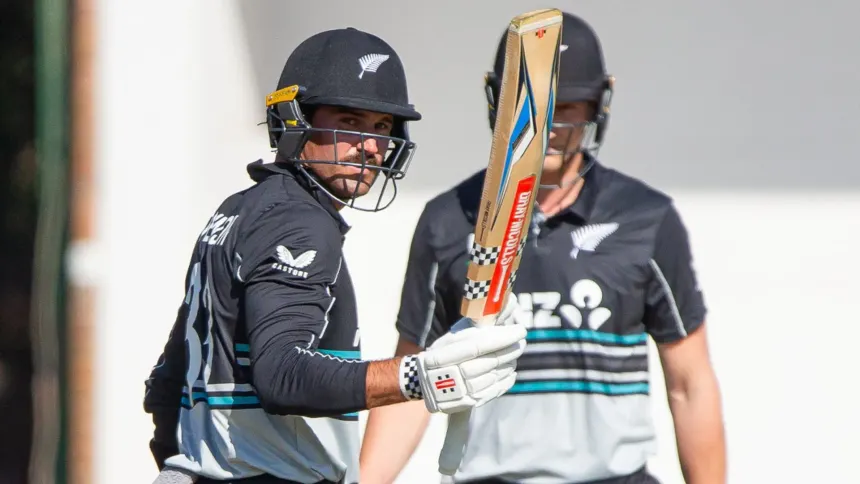
New Zealand have emerged as the frontrunners in the ongoing Zimbabwe Tri-Nation T20I Series, registering two convincing victories against South Africa and Zimbabwe in the first round of matches at the Harare Sports Club. With these performances, the Kiwis have not only asserted their dominance but also set the tone for the remainder of the tournament.
In their opening match on July 16, New Zealand faced a stern test from South Africa. After being reduced to 70 for 5, it was Tim Robinson’s unbeaten 75 and a steady 44* from Bevon Jacobs that resurrected the innings. Their unbroken sixth-wicket stand of 103 runs propelled New Zealand to a competitive total of 173/5. South Africa began the chase aggressively, with Dewald Brevis giving them early momentum. However, the disciplined bowling attack, led by Matt Henry and Jacob Duffy who shared six wickets between them, restricted the Proteas to 152 all out. The 21-run win gave New Zealand a vital boost in confidence and points.
Just two days later, New Zealand took on Zimbabwe and put up yet another polished display. Zimbabwe, batting first, struggled to gain momentum and were held to 120/7 in their allotted 20 overs. Wessly Madhevere top-scored with 36, but the New Zealand bowlers, particularly Matt Henry with three wickets, kept the pressure on throughout. In response, Devon Conway led a smooth chase with an unbeaten 59, steering the Black Caps to an eight-wicket victory with ease.
These back-to-back wins not only underline New Zealand’s strength and adaptability in unfamiliar conditions but also showcase the emergence of new match-winners. Tim Robinson’s explosive strokeplay, Bevon Jacobs’ calm finishing, and Matt Henry’s consistent wicket-taking form have been crucial. Conway’s experience and control at the top of the order have also provided much-needed stability.
The tri-nation tournament, running from July 14 to 26, features a double round-robin format, with each team playing the others twice before a final. With two victories in as many games, New Zealand are firmly placed at the top of the table. South Africa and Zimbabwe now find themselves under pressure to respond, especially as the matches tighten up and the margin for error diminishes.
Looking ahead, South Africa will need to regroup quickly to challenge the Kiwis in the reverse fixture and to outclass Zimbabwe. For the hosts, the road to the final now looks difficult, but not impossible—they will require both improved batting output and sharper execution with the ball.
New Zealand, meanwhile, will aim to maintain their unbeaten streak, secure a berth in the final early, and potentially use the remaining round-robin games to fine-tune their strategies. Their early dominance suggests they are not just contenders but possibly the favourites to lift the trophy in Harare.

